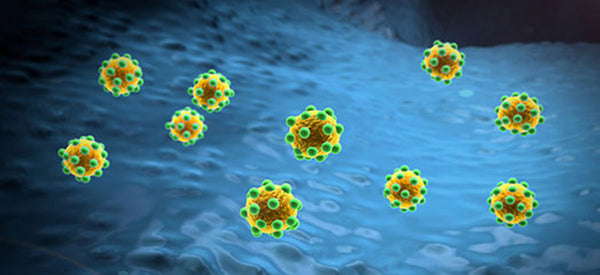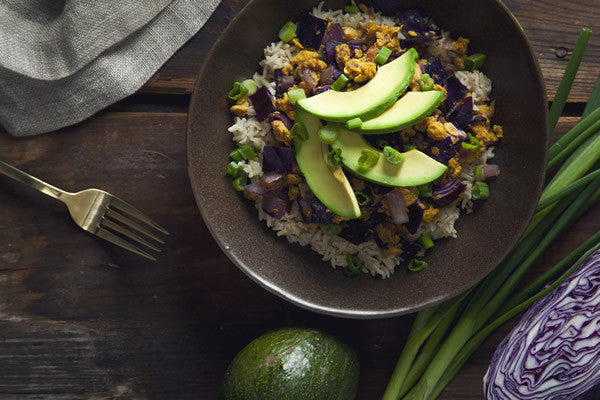


Improved health and an improved sense of well-being are within your grasp when you take charge of your diet. Food is big business in the United States, and it's nearly impossible to walk into a grocery store without buying something that has added sugar or chemical preservatives designed to make whatever's in that box last for months and get you hooked on its flavor. While processed foods may taste good, there's mounting evidence that they're causing real harm to the human body.
Fortunately, it's well within your power to change your life by changing your diet. When you embrace a plant-based diet based on whole foods and home cooking instead of Frankenfoods put together in a factory, your body will get what it needs to run efficiently and help you live your best life. Here's everything you need to know to get started on your journey toward better health.
For most Americans, it's easy to grasp the meaning of the plant-based aspect of this eating style. Your goal is to have most or all of your diet come from plants instead of animal sources. This means that your go-to foods should include plenty of the following:
Choosing foods that come from plants is simple, but how do you know you're getting whole foods? Whole foods are items that you consume as close to their natural state as possible; for example, a whole apple is a whole food, but sweetened applesauce with preservatives and artificial coloring is not. Whole wheat flour is technically a processed food because it's been milled and altered from its natural form, but it is a single ingredient that can still be considered a whole food for nutritional purposes. In general, you want to choose the most minimally processed foods you can to get the biggest health benefits from your meals.
Great things are in store for you when you begin to embrace a whole-food, plant-based diet! Though you might feel limited in your options at first -- helpful tips on dealing with that below -- your body will thank you. You'll feel more energetic and balanced, and your body will begin to heal itself of chronic diseases, so many of which result from the typical American diet.
Your DNA is the code that tells your cells how to reproduce themselves, but when that code is damaged, your body suffers. Free radical damage alters the structure of your DNA and can cause premature aging of the body as cells struggle to replicate themselves. Whole foods filled with antioxidants help stop this damage in its tracks.
The typical American diet is notoriously connected to a whole host of chronic diseases, including obesity, Type 2 diabetes, cardiovascular disease, cancer and even dental diseases. When you eliminate saturated fats from an overload of animal products and replace them with whole fruits and vegetables, you'll lose weight and reverse the effects of these deadly diseases.
In addition to saturated fats and cholesterol, another culprit in the typical American diet that's especially prevalent in processed foods is added sugar. While the body needs sugar for energy, too much can wreak havoc on your moods and lead to intense cravings. Cutting processed foods eliminates an enormous amount of "hidden" sugar that food makers tuck into their products and leaves you feeling more energetic -- no sugar crashes in sight.
Different plants have different nutritional profiles, and some help your body better absorb minerals and nutrients in your diet. Other foods perform an equally important but opposite service by helping the body get rid of unwanted waste and free radicals. High-fiber foods, such as whole grains and vegetables, also help the digestive system get rid of waste quickly.
Whole-food diets help balance the body's hormones naturally by supporting the endocrine system. For example, when your thyroid gets the iodine it needs from whole grains, it can better regulate your metabolism overall. Likewise, nutrient-rich whole foods help decrease the production of harmful cortisol - also known as the "stress hormone." A plant-based diet also eliminates the possibility of ingesting growth hormones that are often added to commercial animal feed.
Your digestive tract is full of natural bacteria that helps you digest food and keep disease at bay, but a diet full of processed foods can wreak havoc on its delicate balance. Vegetables such as garlic and radishes help nourish these friendly bacteria to keep your digestive tract's microbiome going strong.
Low-glycemic diets -- that is, diets that are low in sugar -- lead to clearer skin and can help prevent breakouts of acne. When you replace processed sugar with a rainbow of antioxidant-packed fruits and veggies, you help prevent aging and skin damage.
Although inflammation can be a helpful response when your immune system is fighting off an infection, daily inflammation caused by a poor diet will leave you in pain. Red meat and refined carbohydrates are typical culprits, but a whole-food, plant-based diet automatically cuts your consumption of these inflammatory foods and replaces them with healthier alternatives.
Speaking of red meat, it's also high in saturated fat and cholesterol, which can lead to clogged arteries, heart attacks and stroke. Switching away from animal proteins to a plant-based diet helps you cut way back on foods that cause high cholesterol, paving the way for good health and longevity.
Raising animals for meat takes far more resources than raising fruits and vegetables, so a plant-based diet is a sound environmental choice. You'll also help reduce the demand for methane-producing cattle and -- if you rely on local farmers markets -- the fossil fuels required to ship food long distances.
If you're ready to start living a healthier lifestyle but aren't sure where to start, relax! Making a series of changes is much easier than trying to go cold turkey, and you're likely to stick to the plan if you take slow, deliberate steps in the right direction. Here's how to begin.
You'll drive yourself crazy if you try to account for every super-nutrient you hear about on the news -- so don't. Instead of counting calories and denying yourself the things you enjoy, focus on designing delicious meals based on all the ingredients you should be eating. When you fill your fridge and pantry with whole foods, you'll have them on hand to cook with. Just plan meals that feature ingredients from several of the categories listed above, and the sheer variety will ensure you get the nutrients you need. Best of all, you can eat as much as you want when you're making healthy choices to begin with!
Trying to quit all the foods you enjoy at once is nearly impossible, so start with a conscious decision to replace one item with a healthier choice. If you love sweets, start by replacing Oreos with apple slices for a snack. Love crackers? Choose a whole-grain product with no added sugar. Replace sweetened yogurts with a coconut milk version, adding a handful of berries instead. Eventually, your cravings will subside and your palate will awaken to the incredible flavor and variety of a whole-food diet -- but you don't have to deny yourself everything at once to get there. Just continue to crowd out unhealthy foods with better choices until you're eating only the good stuff.
To help get the full range of nutrients that protect you against inflammation, chronic disease and aging, challenge yourself to make each meal a rainbow of color. When it comes to fruits and vegetables, different colors indicate different phytonutrients, so aim for a green salad dotted with red, orange and purple for a range of vitamins and minerals. Creating a beautiful plate will also make your plant-based meals more appealing to all your senses, allowing you to fully enjoy the pleasures of eating.
When you switch to a whole-food, plant-based diet, you're automatically embracing a low-fat diet. There's no need to cut back any further; in fact, your body needs healthy fats to survive and thrive. Avocados, olive oil, nuts and seeds are all nutrient-rich sources of healthy fats that will keep your body feeling satisfied and full longer, so add them to your cooking for flavor and good health.
One of the biggest hurdles for many Americans to overcome is their sweet tooth. Almost every processed food has sugar added to it these days, and retraining your brain to respond to the natural sweetness in whole foods takes a bit of time. To help speed that process along, avoid foods with added sugar as much as possible, and skip the sugar or honey in your tea as you wean yourself off the sweet stuff. Once your body adjusts, you'll notice that fruit tastes much sweeter and your cravings disappear.
Embracing a whole-food, plant-based diet is one of the greatest gifts you can give your body. By supplying it with all the energy-rich foods it needs while protecting it from the processed food that causes chronic disease, you will enjoy a lifetime of improved health, energy and mood. Simply put: The whole-food, plant-based diet will transform your life. BEAUTY
BEAUTY
 LIFESTYLE
LIFESTYLE
 RECIPES: VEGAN MAINS
RECIPES: VEGAN MAINS
Sign up today to receive weekly Beauty, Nutrition and Lifestyle tips, exclusive offers, and 10% off your first purchase.
Our beauty and wellness brand offers support, services and products to help you become WELL WITHIN your skin, mind and body.
Sign up today and receive your special Friends and Family 20% off your first purchase, valid until May 31, 2017.
Stay Ever Well,
Lynne + Renee
Co-founders
Thank you for signing up today to receive weekly Beauty, Nutrition and Lifestyle tips, exclusive offers and your special Friends and Family 20% off your first purchase, valid until May 31, 2017.
Stay Ever Well,
Lynne + Renee
Sign up today to receive weekly Beauty, Nutrition and Lifestyle tips, exclusive offers, and 10% off your first purchase.
Leave a comment
Comments will be reviewed prior to posting.